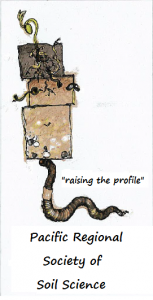April 8, 2014 News Release
In an Open Letter to the Premier, a group of experienced soil science professionals has expressed concern regarding the scientific basis and justification for proposed changes to the provincial Agricultural Land Reserve (ALR) and the provincial Agricultural Land Commission (ALC).
Under Bill 24, which was recently introduced in the Legislature, the current ALR would be divided into two zones and administered by six regional panels. Farmland would be less protected in Zone 2, comprising the Kootenay, Interior and North regions of the province, as regional decision-makers would be required to consider short-term economics in addition to the primary consideration of the soil/climate capability of the land to support food production.
This is a substantial change in direction for the 40-year ALR program whose purpose is to preserve BC’s limited agricultural lands for the long term, say the experts. They also maintain that the justification put forward as the basis for these changes is flawed.
The group of experts includes university professors, practising soils and land use consultants and several retired soil surveyors who carried out the original mapping throughout the province that formed the basis of the provincial agricultural land classification and the ALR. All take issue with Government statements that agricultural lands in the interior and northern parts of the province are “marginal” for farming.
“The scientific basis of agricultural land classification in BC is the soil and climate combination to produce a range of crops. Eighty-five percent, or over 2 million hectares, of our best lands, those with the widest range of cropping options, occur in the proposed Zone 2,” said Dr. Terence Lewis, a soils and land use consultant who was involved in establishing the original ALR boundaries in 1973-75. “Yes, there are some lower capability lands limited to the production of forage or natural grasslands included within the ALR in certain areas of the province. But, that was precisely because farmers and ranchers told us these lands were critical to their operations and to agriculture in their regions.”
Dr. Paul Sanborn, Associate Professor of Ecosystem Science and Management at University of Northern British Columbia, reiterated the groups’ concern at Government’s assertion that northern climates mean farmlands there are less valuable. “Even though some of the lands within the ALR in the northern regions of the province may be limited to a narrower range of crops, studies have shown that, within that range, productivity yields are often higher in northern regions than southern, based on longer day lengths, more sunshine and better soil moisture regimes. With climate change, these lands are going to become even more important for food production in the future.”
While the group of soil science experts acknowledge there may be some areas of the province that warrant review, they point out that considerable ‘fine-tuning’ of the ALR boundary has taken place over the decades in response to better scientific data and that this should continue under the direction of the provincial ALC.
In addition to putting valuable agricultural soils and lands at risk, the group expresses concerns about the equity and fairness of Government substantially changing the rules at this stage of the program’s existence.
“Throughout my 38-year teaching tenure, I have spent considerable time out in the field talking and working with farmers throughout the province,” said Dr. Art Bomke, Professor Emeritus, UBC Faculty of Land and Food Systems. “Bill 24 raises several issues related to fairness and equity between the two zones and between farmers, past present and future, within each zone. I am also very concerned about the impact upon farming communities that could result from introducing more non-farm activities in Zone 2. Any lower mainland farmer can confirm that having subdivisions or industrial uses adjacent to them makes it more difficult to continue farming.”
The group of soil science experts ended their letter by listing the key elements of effective farmland preservation that should instead guide any Government changes to the ALR, namely maintaining a province-wide ALR zone that is based on science and permanence and that is administered by a provincial Commission and supported by programs that encourage farming. They conclude that Bill 24 undermines all four of those elements and should therefore be reconsidered.
Contact for further information:
Dr. Terence Lewis, Courtenay, BC – Telephone: 250-897-0490
Dr. Paul Sanborn, Prince George, BC – Telephone: h. 250-562-8214 w. 250-960-6661
Dr. Art Bomke, Vancouver, BC – Telephone: 604-874-2479
View Press Release in pdf here
